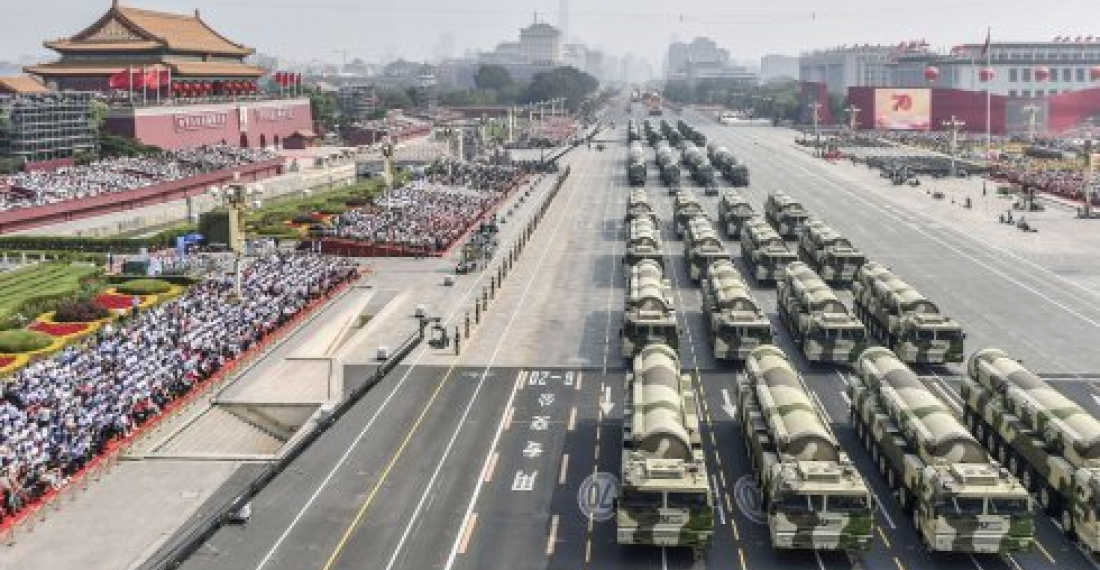It is easy to succumb to the pressures of the arms lobby and to rush into a military spending spree without understanding that there are still alternatives to this, and that these alternatives have not yet been exhausted, argues Dennis Sammut in this week's Monday Commentary on commonspace.eu
The world spent 1.8 trillion USD on military expenditure in 2018 according to data from the Swedish International Peace Research Institute (SIPRI). The United States and China lead on the spending spree, but countries such as Russia, Turkey, France, UK, Germany and Italy are in the top fifteen. Every country has a right - duty even - to defend itself, and a defence strategy backed by a reasonable defence budget is legitimate. But that is only part of the story.
Towards the end of the cold war, and in the years immediately after, there was a concerted effort to halt the arms race, start reining in military expenditure, and benefit from a peace dividend. In Europe at least that appeared to be working for a while. But new threats soon emerged. And beyond Europe the appearance of China as a global military power added a new dimension to the equation which other countries felt a need to address. Russia has complemented its new political assertiveness with a military rearmament programme that has been going on earnest for more than a decade. Its annexation of Crime has sent many of its neighbours rushing to the next arms fair. The US remains the biggest spender on arms. President Trump has gone on a huge spending spree - partly in response to China and other threats, and partly to satisfy the US arms industry. Trump has also been piling pressure on US allies to spend more on defence. Beyond NATO there are also no shortage of buyers from countries involved in the multiple regional and local conflicts across the globe.
The arms industry is an influential player in global politics. Countries that spend a lot on arms usually have an arms industry which also seeks to sell to third countries. The more they can sell to third countries the less will the home country have to pay, so governments quickly become salesmen for their arms industries in what is a very lucrative, but deadly business. According to SIPRI, of the twenty top arms suppliers in the world nine are American, four Chinese, three Russian, one each from France, Italy and UK, and one European.
In this situation the need for an alternative strategy should be obvious:
- There is a need to rein in the arms race. This needs to become the immediate, urgent and primary task of institutions such as the United Nations and the Organisation for Security and Co-operation in Europe. There are competing agendas that are also hugely important - for example climate change and the global development goals. They need to be pursued in tandem, not at the cost of not focusing on peace and disarmament;
- Diplomacy - official and informal needs to be invigorated. Preventing and resolving conflicts peacefully may be a laborious, time consuming and often frustrating process. This is not an excuse why not to pursue these objectives with increased vigour;
- Peace-building needs to be factored in as part of national defence strategies, not as an ornamental add-on, and the role of non-state actors in civil society and the think tank community needs to be properly recognised;
Compared to the 1.8 trillion USD nations spend on their military the expenditure on diplomacy and peace-building is miniscule. Yet we keep hearing that soft power does not/has not worked. It is easy to succumb to the pressures of the arms lobby and to rush into a military spending spree without understanding the implications and without recognising that there are still alternatives, and that these alternatives have not yet been exhausted.
source: Monday Commentary is prepared by Dennis Sammut, a member of the editorial team of commonspace.eu
photo: A military parade in Beijing (archive picture)
The views expressed in opinion pieces and commentaries do not necessarily reflect the position of commonspace.eu or its partners






